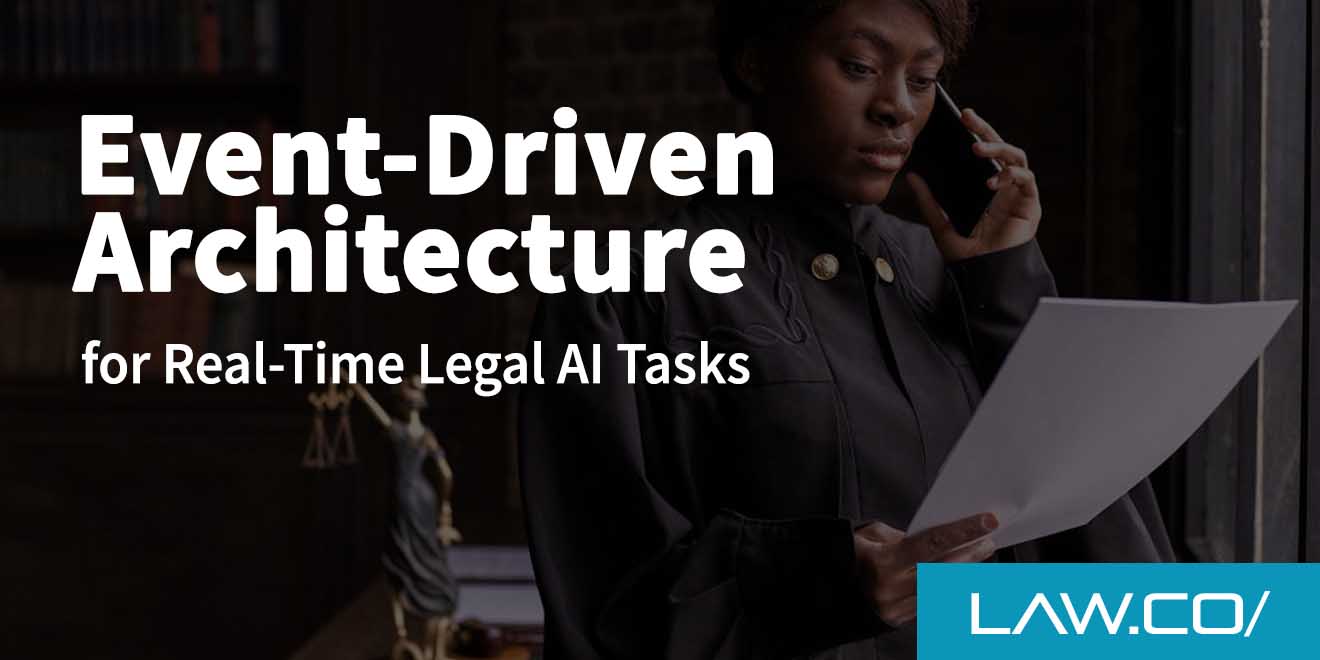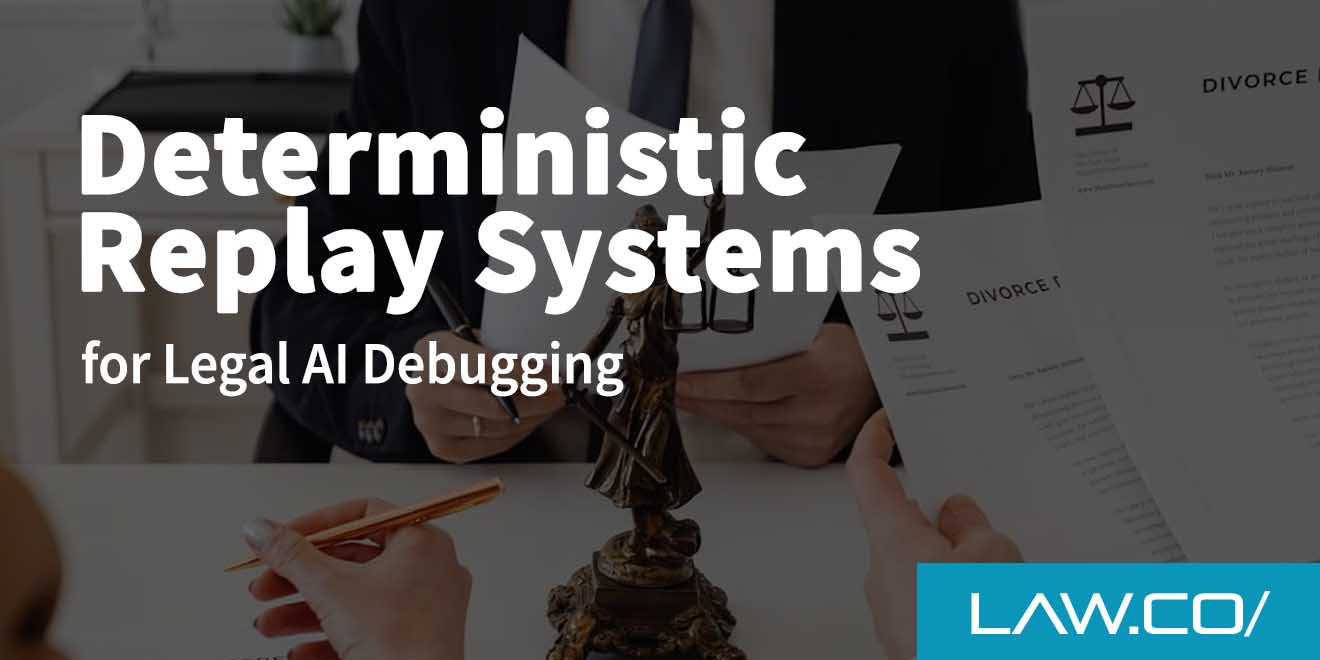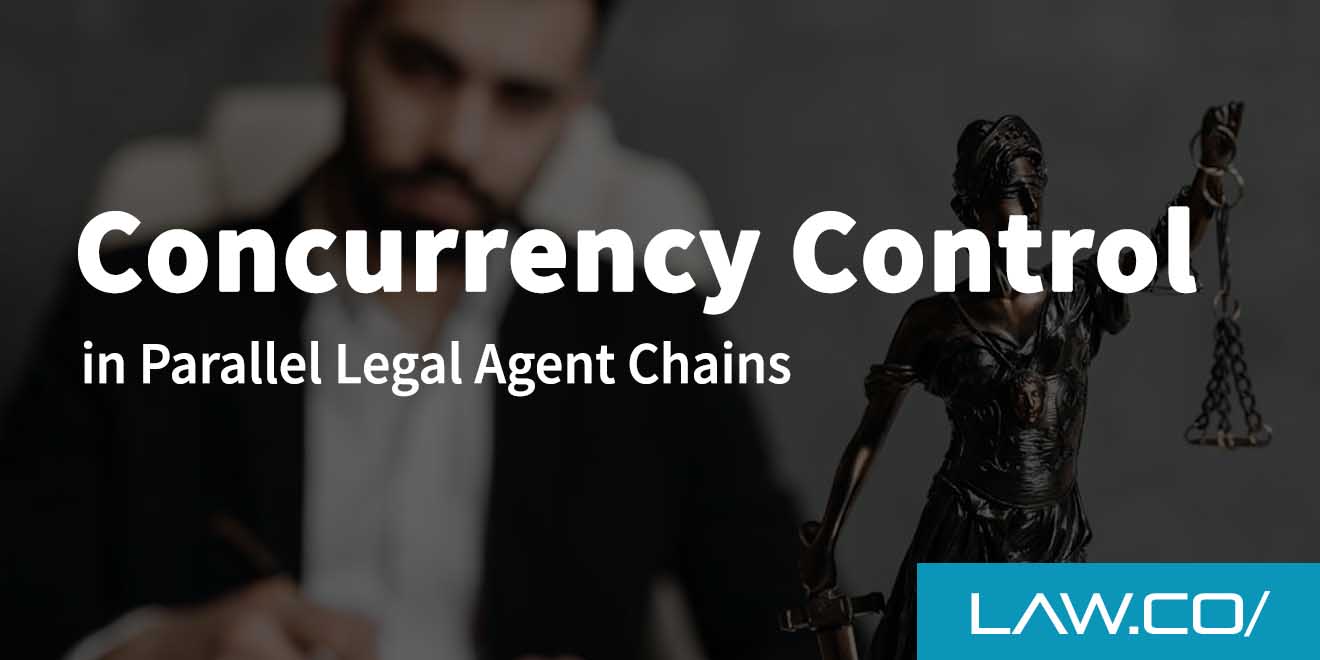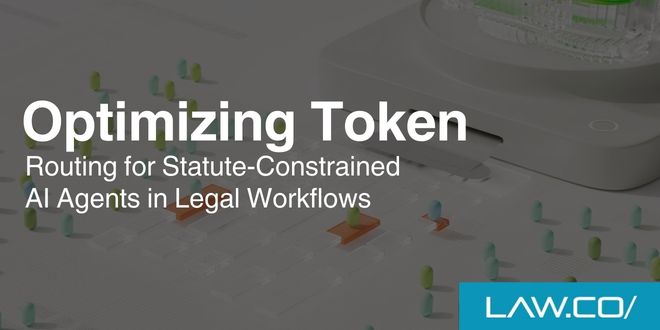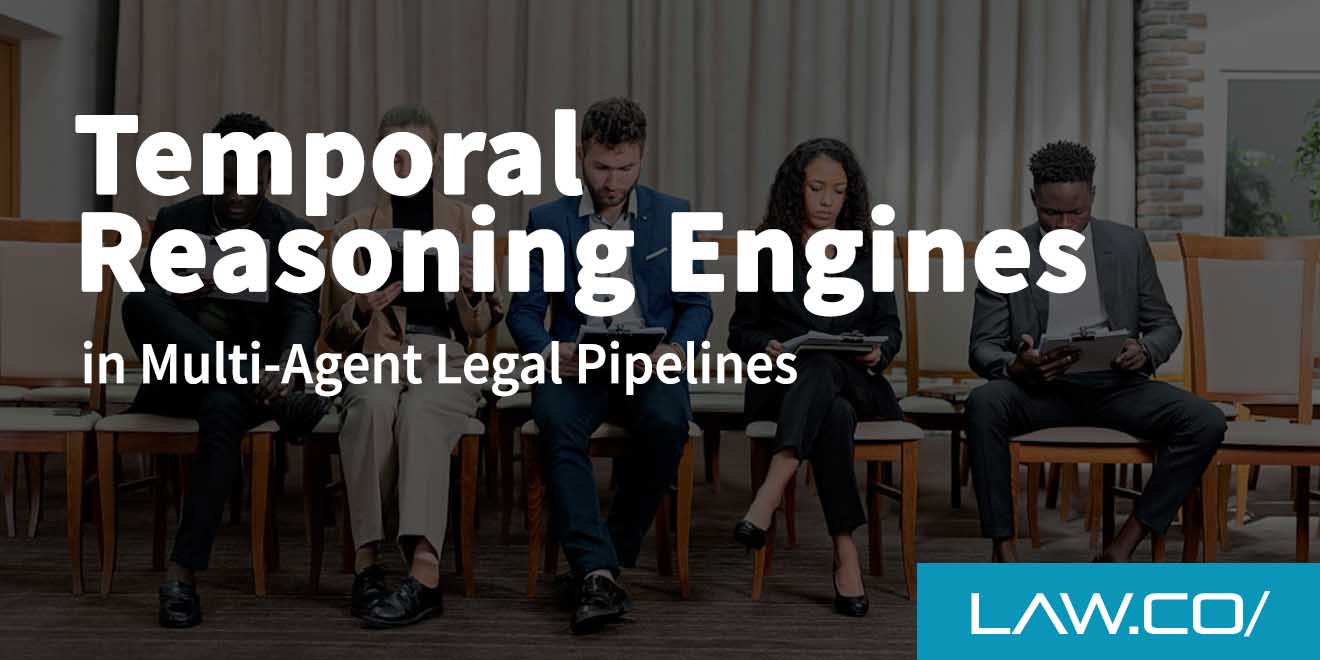
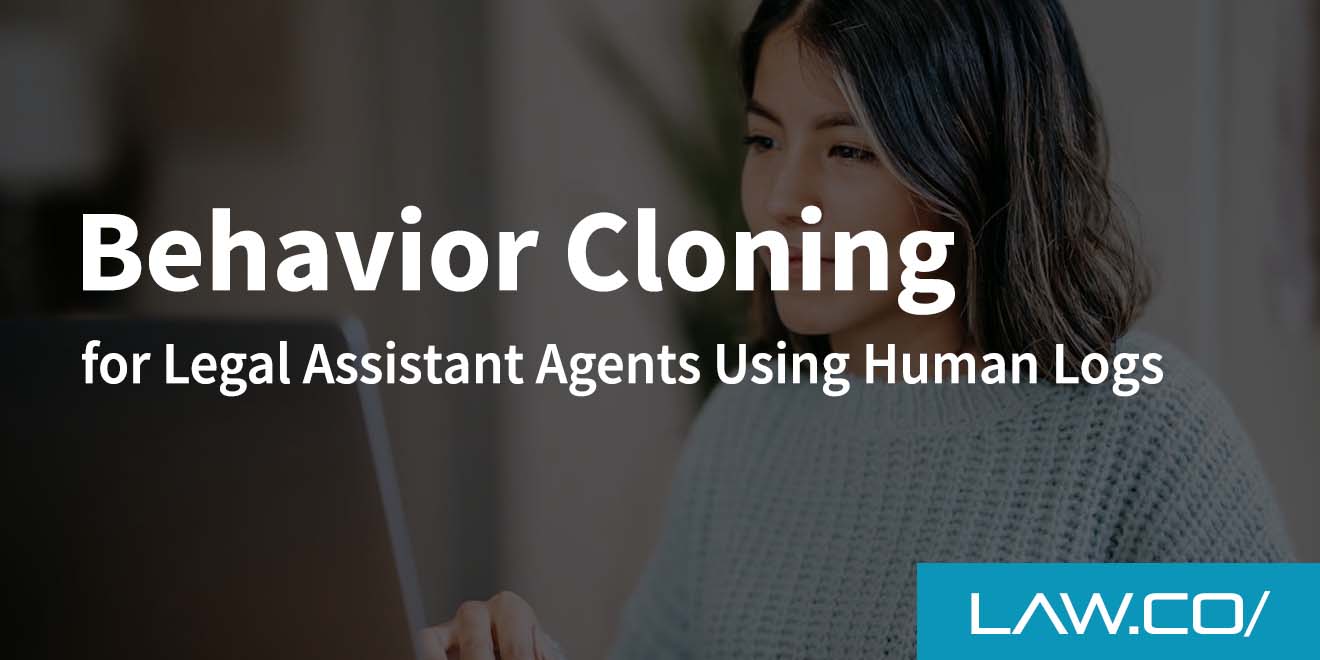
Behavior Cloning for Legal Assistant Agents Using Human Logs
The promise of artificial intelligence has finally reached a point where even the most traditional lawyers and law firms are taking notice. While predictive analytics and e-discovery tools have been simmering in the background for years, the next frontier is something much more hands-on: behavior-cloned legal assistant agents that learn directly from human interaction logs.
In plain English, we are talking about training an AI to observe how real legal professionals research, draft, and communicate, then replicate those patterns to become a digital colleague that feels genuinely helpful rather than merely high-tech.
Decoding Behavior Cloning: What It Means for the Modern Legal Office
Behavior cloning is exactly what it sounds like: capturing the behavioral patterns of experts and transferring them to an artificial system. Instead of feeding the AI a static rulebook, we allow it to watch and imitate how paralegals pull cases, how junior associates organize discovery, or how partners phrase client emails. The resulting agent is not a generic chatbot; it is molded by the day-to-day habits of your own team.
In practical terms, that means less time onboarding yet another software tool and more time leveraging an assistant that “thinks” the way your staff already works.
From Courtroom to Code: A Quick Primer on Behavior Cloning
Traditional supervised learning teaches an AI by showing it labeled examples. Behavior cloning, by contrast, captures user logs, clicks, keystrokes, search queries, even the pauses in between actions, and treats each sequence as a step-by-step demonstration. Over thousands of sessions, the system starts to recognize when a lawyer cites precedent, when they switch tabs to Shepardize a case, or when they edit out passive voice in a contract clause.
By aligning these patterns with outcomes (a well-researched memo, a polished brief, a satisfied client), the agent develops an internal map of “If my human does X in context Y, I should do Z.”
Why Human Interaction Logs Are the Secret Ingredient
Logs are the living diaries of your workflow. They capture details that no training manual can fully express, such as:
- Nuance in citation style.
- Preferred order of document review.
- Idiosyncratic library of go-to precedents.
- Email tone fluctuations when writing to opposing counsel vs. clients.
- Shortcuts used in legal research platforms.
Because these traces come straight from daily practice, they protect against the one-size-fits-all pitfall that plagues many off-the-shelf AIs. Think of it this way: generic language models may know what a motion to dismiss is, but only your firm’s logs reveal how you argue it, how you phrase key points, and how you structure supporting affidavits.
Practical Benefits for Everyday Legal Workflows
1. Drafting on Autopilot (but with Oversight)
With behavior cloning, an AI assistant can pre-populate first drafts of memos or contracts that reflect your style guide, favorite clause libraries, and even your typical risk thresholds. Lawyers then shift from pure drafting to a higher-level “edit and refine” role, which boosts productivity without sacrificing quality.
2. Expedient Research Paths
Because the agent has watched countless Westlaw or Lexis queries, it mirrors the search patterns of your best researchers, often surfacing on-point cases in minutes rather than hours. Over time, it may even suggest queries a human reviewer overlooked.
3. Smarter Client Communication
An email that once required thirty minutes of careful wording can emerge from the AI already aligned with your firm’s tone, whether that’s buttoned-up formality or friendly practicality, thanks to observing thousands of prior client correspondences.
4. Consistency Across Teams
Junior associates frequently learn by reading older motions or templates. A behavior-cloned assistant can make that institutional knowledge available on demand, offering clause suggestions or citation reminders that carry the “firm voice” into every document.
5. Cost Control
When routine drafting and research tasks speed up, billable hours can be reallocated to high-value analytical work. That keeps client invoices reasonable and frees attorneys to focus on winning strategy rather than clerical grind.
Implementing a Behavior-Cloned Assistant Responsibly
Of course, importing your firm’s collective know-how into a machine is not a task to rush. Success hinges on a thoughtful, privacy-first game plan.
Data Hygiene and Anonymization
Human logs inevitably contain privileged material. Redacting or tokenizing sensitive names, account numbers, and client secrets is non-negotiable. Many firms partner with data-privacy specialists to design pipelines that scrub such details before the logs ever reach a training server.
Transparent Governance
Attorneys must know what data is collected, how it is used, and whether the resulting model will remain in-house or be shared externally. Establish clear usage policies, retention schedules, and audit trails that comply with professional responsibility rules in your jurisdiction.
Human Oversight Remains Central
No matter how accurate an AI becomes, a licensed lawyer must review its output. Consider the agent an ultra-fast paralegal, not a replacement for professional judgment. Bar associations have begun emphasizing this “human-in-the-loop” principle, and the best systems are built with override and feedback mechanisms from day one.
Ethical Guardrails
Bias in legal language models can distort outcomes, especially in sensitive areas like criminal defense or employment law. By grounding training data in your firm’s actual work product, which has already passed attorney review, you reduce, though not eliminate, the risk of skewed suggestions. Regular bias audits and cross-checks with diverse datasets help keep the model fair.
The Future of AI Support in Legal Services
Within five years, behavior-cloned legal assistants may shift from novelty to necessity. Clients increasingly expect fast turnarounds and transparent billing. Courts grow more comfortable with electronic filings created in part by AI systems. And the talent market rewards firms that free junior associates from mind-numbing discovery tasks so they can focus on strategic thinking.
Some speculate that full document automation could jeopardize billable hours, but early adopters report a different outcome: matters conclude faster, clients are happier, and attorneys redirect time savings to deeper advisory roles, work that commands higher fees and greater professional satisfaction. Moreover, as the assistant continues to learn, it can surface emerging precedents or novel arguments that keep your practice at the cutting edge.
For firms hesitant to dive in, a pilot project can demystify the process. Select a discrete task, perhaps initial contract drafting for a single client vertical, and allow the AI to train on a curated set of human logs. Measure time saved, error rates, and lawyer satisfaction. Use those metrics to refine both the model and the deployment strategy. Gradual adoption often yields better results than a sweeping, firm-wide rollout that overwhelms staff.
Conclusion
Behavior cloning represents a pragmatic bridge between traditional legal craftsmanship and modern AI efficiency. By allowing an assistant to learn directly from the day-to-day efforts of actual practitioners, lawyers and law firms preserve the subtle expertise that sets them apart while embracing technology that trims busywork. The key is a responsible implementation, one that treats client data with the utmost respect, keeps attorneys firmly in control, and makes continuous improvement part of the culture.
In the end, the question isn’t whether AI will transform legal work, but how quickly your practice plans to guide that transformation. With behavior-cloned assistant agents, the path forward doesn’t require abandoning proven methods; it simply amplifies them, ensuring your firm remains agile, competitive, and ready for the next wave of innovation.

%201.svg)


